The DJI FPV drone has officially taken off – and one of the most striking things around its launch, other than the alien spacecraft looks of the device itself, is how much the launch felt like a GoPro event.
Dizzying videos of wingsuit fliers, follow-shots of motocross riders, pans of drifting cars – this was all a little more hi-octane than the usual DJI drone launch. In fact, it felt almost indistinguishable from GoPro's annual highlights reel.
This is no coincidence. GoPro and DJI have a shared history that's seen their stories intertwine over the years – and the DJI FPV feels like the closest thing to an aerial GoPro that the Chinese drone king has made so far.
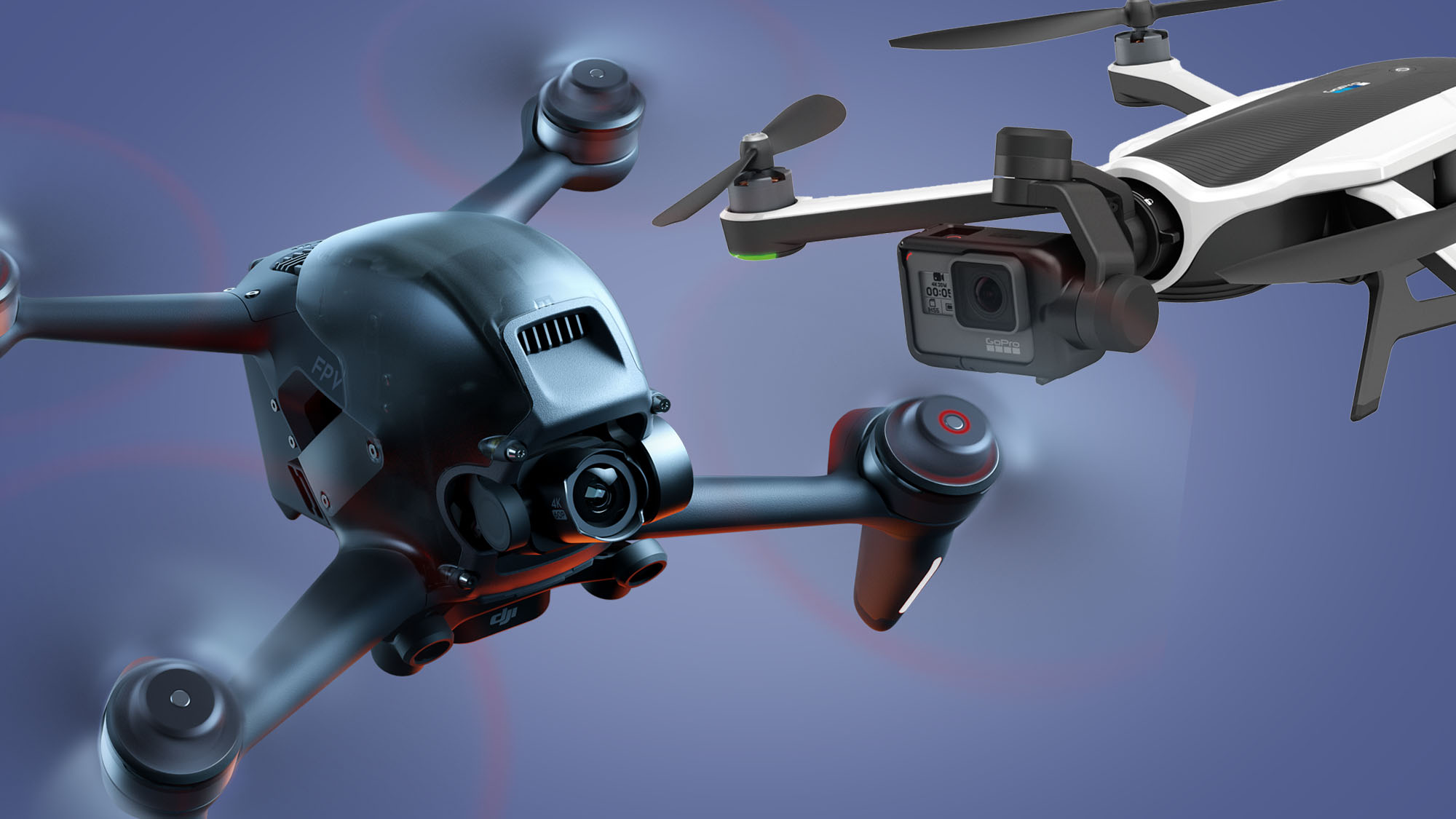
A speedy 'first-person view' drone that comes with a pair of video goggles that give you a live video feed from the sky, the DJI FPV isn't just built to film action sports – the whole flying experience is, as with racing drones, arguably an action-themed hobby in itself, albeit one that's more likely to endanger trees than your own limbs.
There's no doubt that an 87mph drone that shoots 4K/60p video and gives you the sensation of being a fearless base jumper has GoPro written all over it.
In this sense, the DJI FPV feels like the drone that the ill-fated GoPro Karma (pictured with the DJI FPV above), which launched back in 2016, should have been. GoPro has always marketed action cams like the GoPro Hero 9 Black as the perfect accessory for extreme sports, even if most us are more likely to fly economy that pull on a wingsuit.
And if discussions between the action cam giant and a fledgling DJI had gone differently a few years ago, the DJI FPV could well have arrived sporting a GoPro logo – or at least had some more competition in the beginner FPV drone space that it's attempting to conquer.
- Read our hands-on DJI FPV review
Bad Karma
Back in the early 2010s, GoPro was flying, metaphorically speaking (in terms of action cam sales, at least) and DJI was an unknown drone manufacturer with a promising UAV (Unmanned Aerial Vehicle) called the DJI Phantom.
That first-gen drone didn't have its own camera, but it was compatible with GoPros, so it made sense for DJI and GoPro to discuss collaborating on a drone. As DJI founder and current CEO Frank Wang revealed in a 2015 interview with Forbes, the two companies "wanted to make a product together for GoPro to sell, but the negotiation never came to fruition".
The problem, according to DJI's Wang, was that GoPro "treated us like the original equipment manufacturers". So, with DJI "not willing to be someone else's accessory", the two companies went their separate ways – before colliding head-on when GoPro launched the ill-fated GoPro Karma in late 2016.
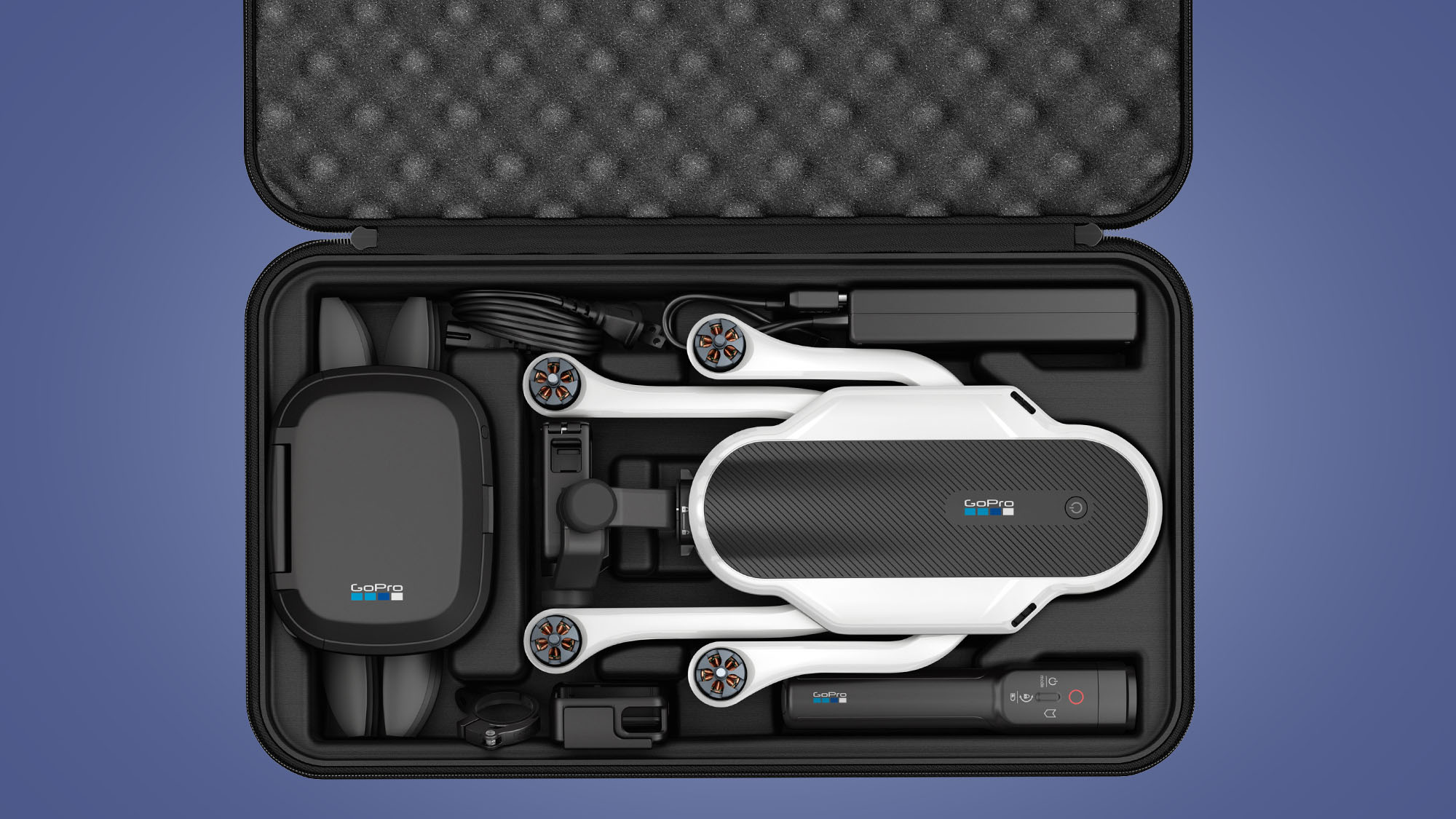
Leaving aside the delicious irony of that product name, at least from DJI's perspective, GoPro's decision to make a drone certainly made sense (and arguably, still does); after all, these flying cameras were increasingly being used at the same action sports events as ground-based cams like its then-flagship GoPro Hero 4.
Sadly, the Karma was a disaster. Soon after its launch, GoPro was forced to issue a recall after battery issues caused power failures during the flight of some models. Inevitably, this meant that GoPro's attempt to give its cameras an aerial platform ending up bombing harder than Wile E. Coyote.
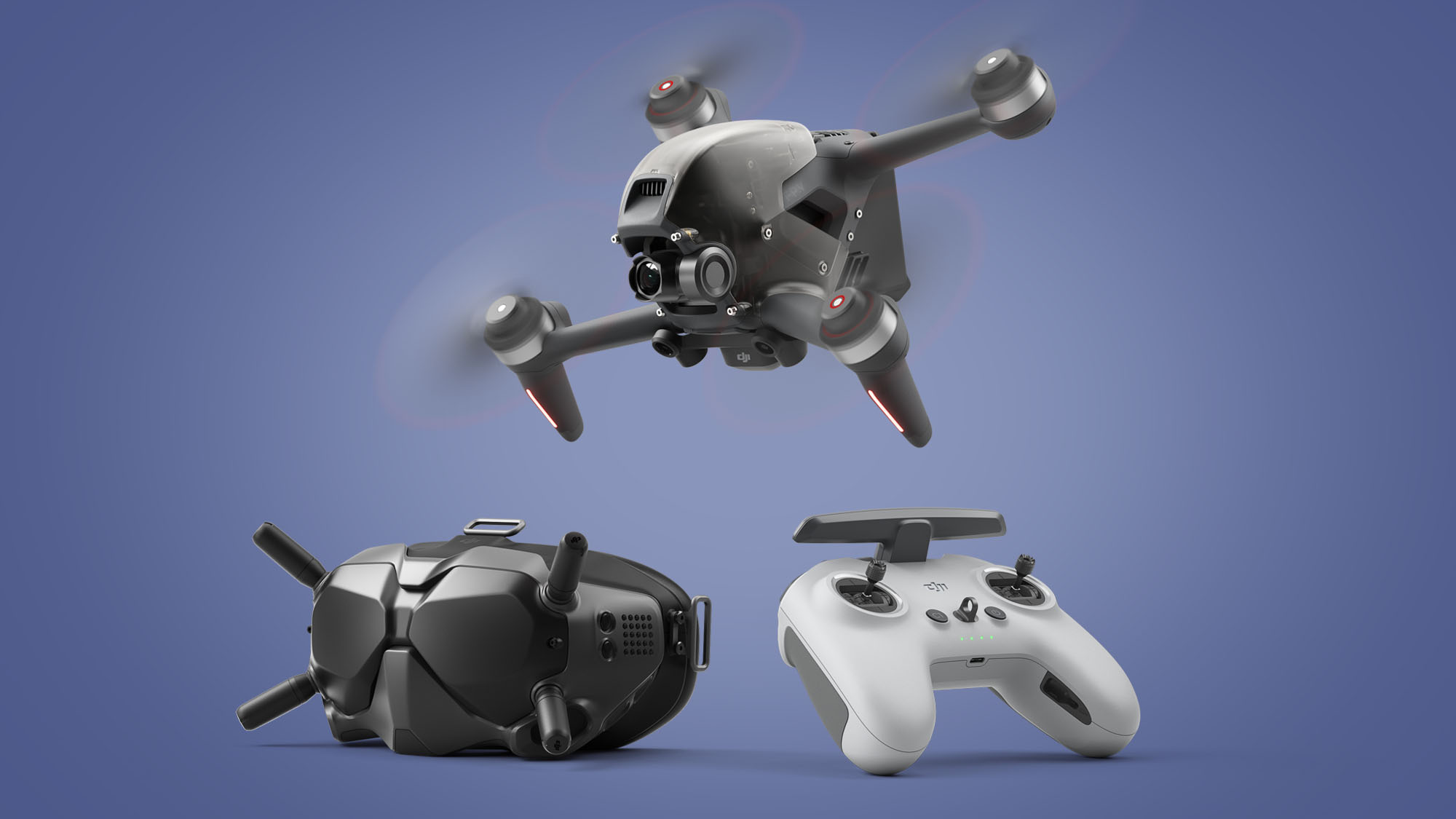
We don't yet know what problems could befall the DJI FPV – it comes with some practical limitations that mean it's unlikely to match the widespread popularity of something like the DJI Mavic Air 2. For example, you're legally required to have an observer or 'spotter' with you when flying FPV drones, due to the fact that the video goggles mean you can't maintain line of sight with the drone, which somewhat dampens the new model's pick-up-and-play appeal.
But there's no doubt that the concept of an affordable, 87mph drone that shoots 4K/60p video and gives you the sensation of being a fearless base jumper has got GoPro written all over it – and feels like the natural evolution of the company's somewhat plateauing action cams.
Fly hard
FPV drones have been around since way before the GoPro Karma launched, but they've largely been a hobbyist niche for tinkerers and solderers – until now.
The DJI FPV is unique because it combines the speed and agility of a racing drone with the filmmaking powers and user-friendliness of models like DJI Mini 2 and DJI Mavic Air 2. It's also attempting to bring extreme aerial sports to a new audience – which is again why it feels like a GoPro-style play.
The early Hero action cams sprang from hobbyist beginnings to create a brand-new camera niche for themselves. But as GoPro found when it made the Karma, drones are on another level of complexity – and the DJI FPV is far from a guaranteed home run.
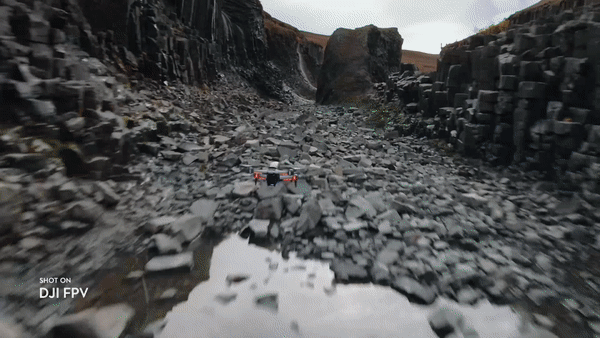
Aside from the prospect of high-speed crashes (DJI sells numerous replacement parts), the DJI FPV also faces the potential danger of truly satisfying no one. Yes, it has a top speed of 87mph and can accelerate from 0-62mph in just two seconds, but it can't hit the 120mph top speeds of the homemade flying machines seen in pro racing leagues; and at 795g, it's way too heavy for hardcore drone racers.
And yet the DJI FPV also falls short of some of the company's Mavic models when it comes to capturing high-quality aerial footage. Its relatively small 1/2.3-inch CMOS sensor is more in the realm of smaller fliers like the DJI Mini 2, rather than the DJI Mavic 2 Pro, and you also don't get any of the intelligent flight modes, like QuickShots or subject tracking, that have made DJI's drones such user-friendly aerial filmmaking companions.
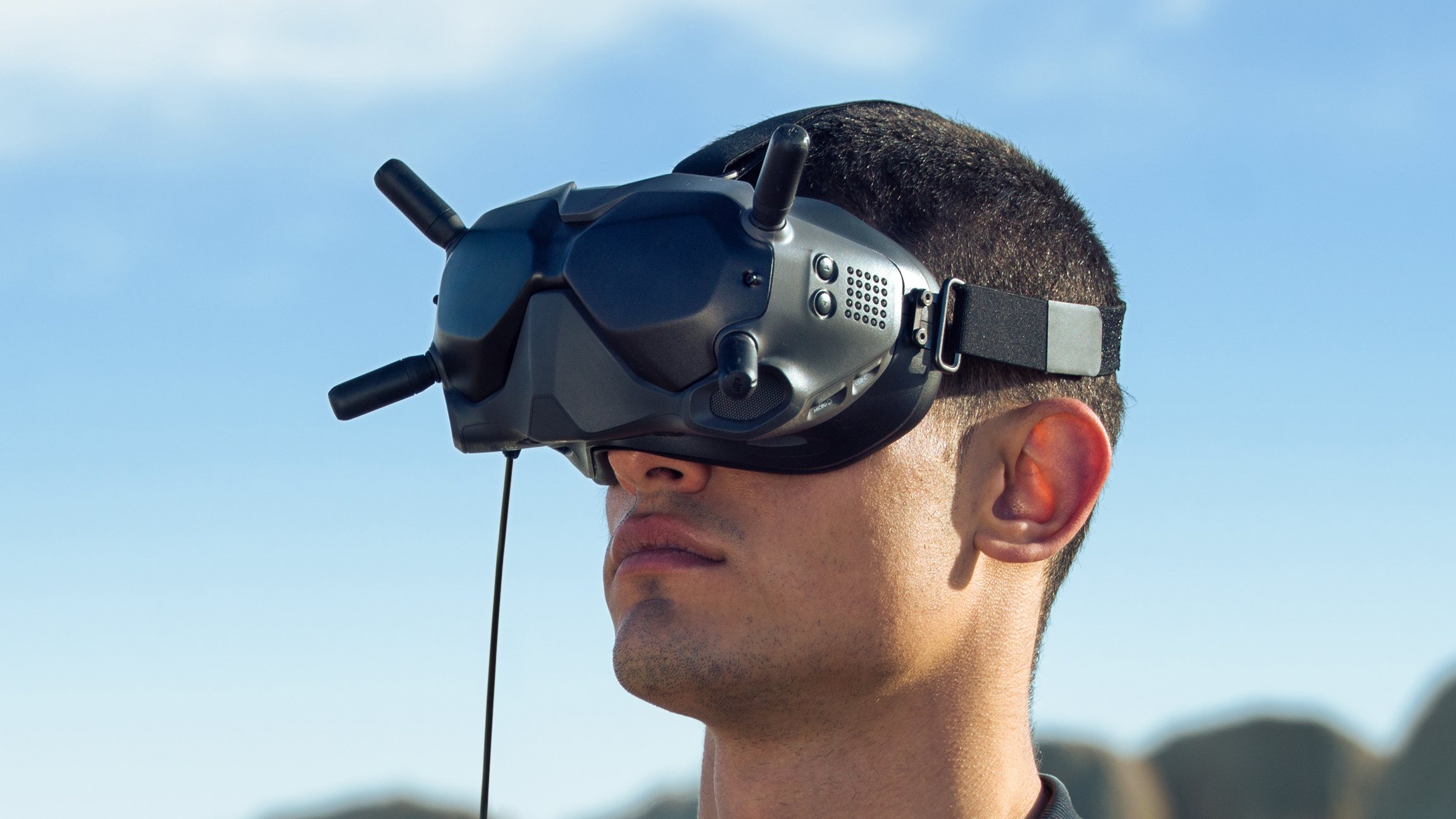
What you do get, however, is the RockSteady image stabilization from the DJI Osmo Action to help keep your videos smooth. Would GoPro's HyperSmooth stabilization be ideal for an FPV drone? Most definitely – in fact, many of today's affordable FPV drones, like the Shendrones Squirt, are designed to be fronted by GoPros for that very reason.
As GoPro found when it made the Karma, drones are on another level of complexity – and the DJI FPV is far from a guaranteed home run.
What this all means is that, rather than truly satisfying drone racers or aerial filmmakers, the DJI FPV is instead a bold attempt to spark mainstream demand for a new hobby – one that involves simply flying a drone for the fun of it. Whether or not DJI will be able to give 'ready-to-fly' FPV drones their GoPro Hero moment is up for debate, but one thing's for sure: it's now too late for GoPro to play catchup.
Land vs air
GoPro's history may be closely linked with those of both DJI and FPV drones – it's frequently been the choice of camera for FPV hobbyists' kits – but once it decided to go it alone with the development of the Karma, there was never any real chance of future drones like a GoPro FPV.
In a pretty frank interview with Mashable back in 2018, GoPro CEO Nick Woodman admitted that the action cam giant simply underestimated how much time and money is needed to produce drones – and that it was better off putting that energy into its main cash cow, the GoPro Hero series.
That decision certainly bore fruit, as from the GoPro Hero 7 Black onwards the action cams rediscovered their mojo and, propelled by excellent features like GoPro's HyperSmooth stabilization, got a second lease of life that's ultimately led to the impressive GoPro Hero 9 Black. In the process, GoPro even saw off the threat from the DJI Osmo Action.
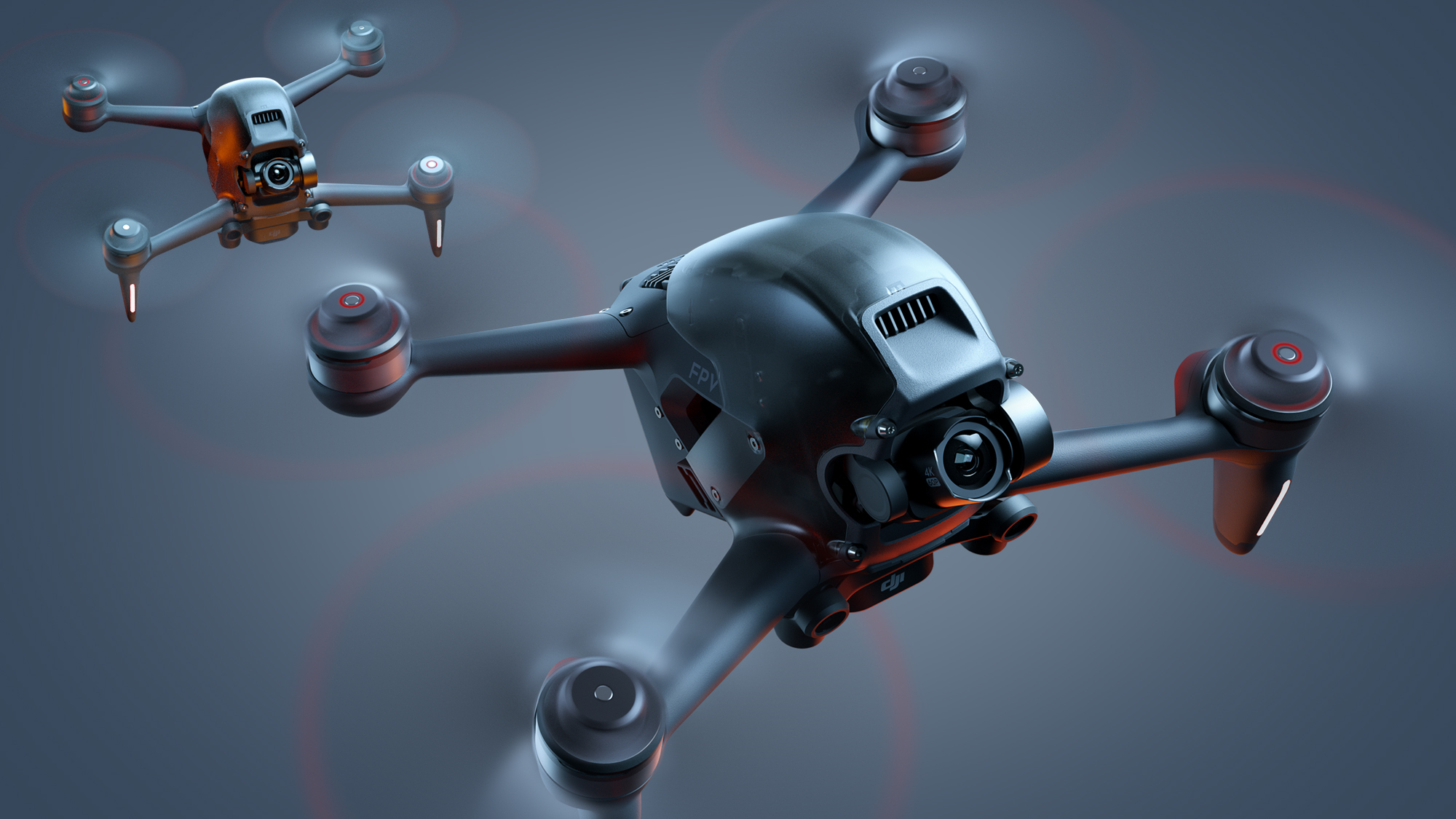
But despite all this, it's hard not to imagine an alternate timeline where GoPro collaborated with DJI in those early days, or managed to develop its own FPV system, which could have given us a serious alternative to the DJI FPV – or at least given first-person view drones more mainstream appeal.
Instead, the DJI FPV will be taking to the skies without any real competition – and while the so-far lukewarm reception to VR headsets suggests it might face a challenge to become anything more than a niche and somewhat pricey toy, we're certainly looking forward to strapping on those goggles, and escaping the pandemic by flying like an eagle.
- These are the best drones you can buy right now
from TechRadar: Photography & video capture news https://ift.tt/3sNVSFk
via IFTTT






0 kommenttia:
Lähetä kommentti